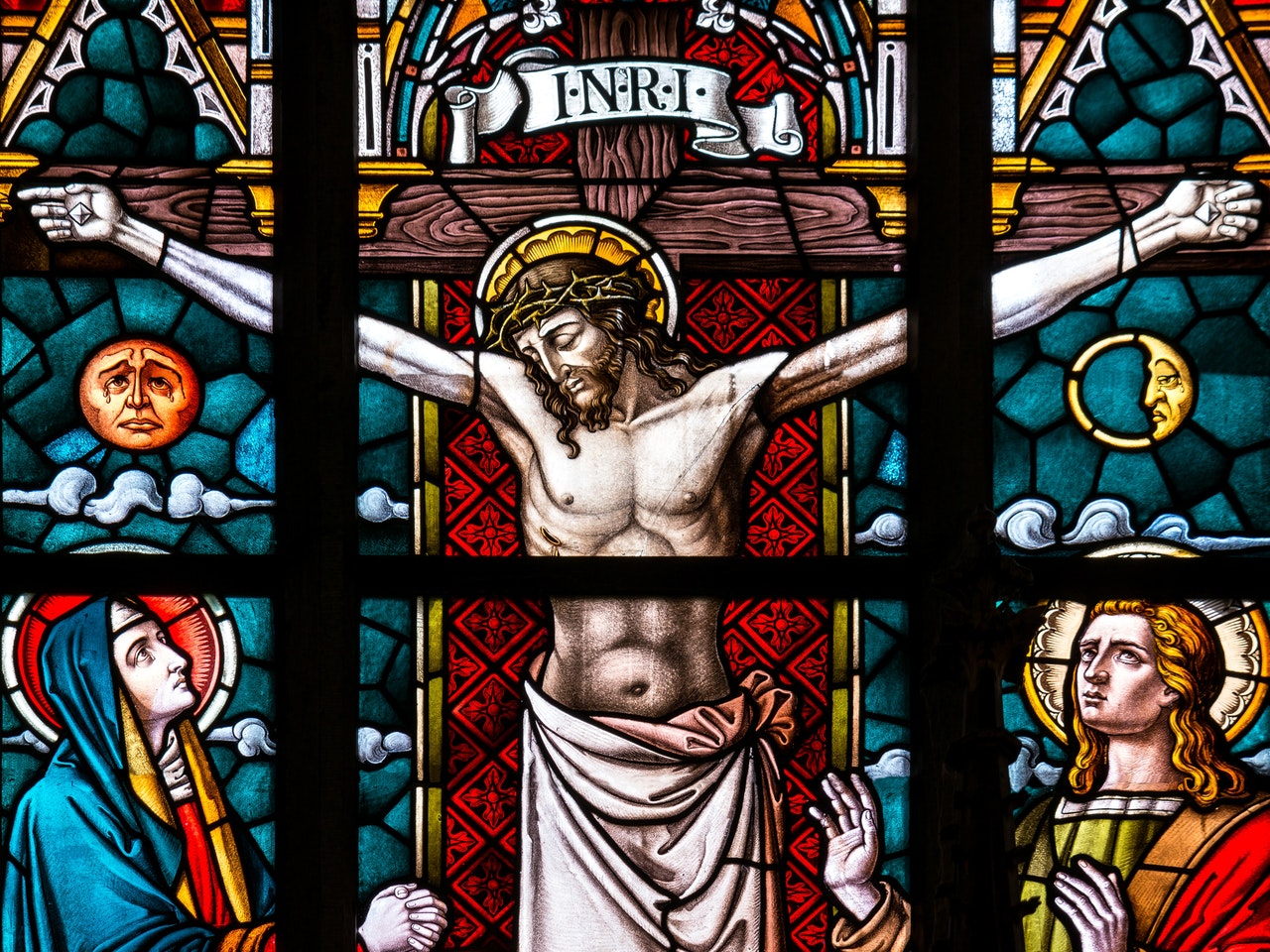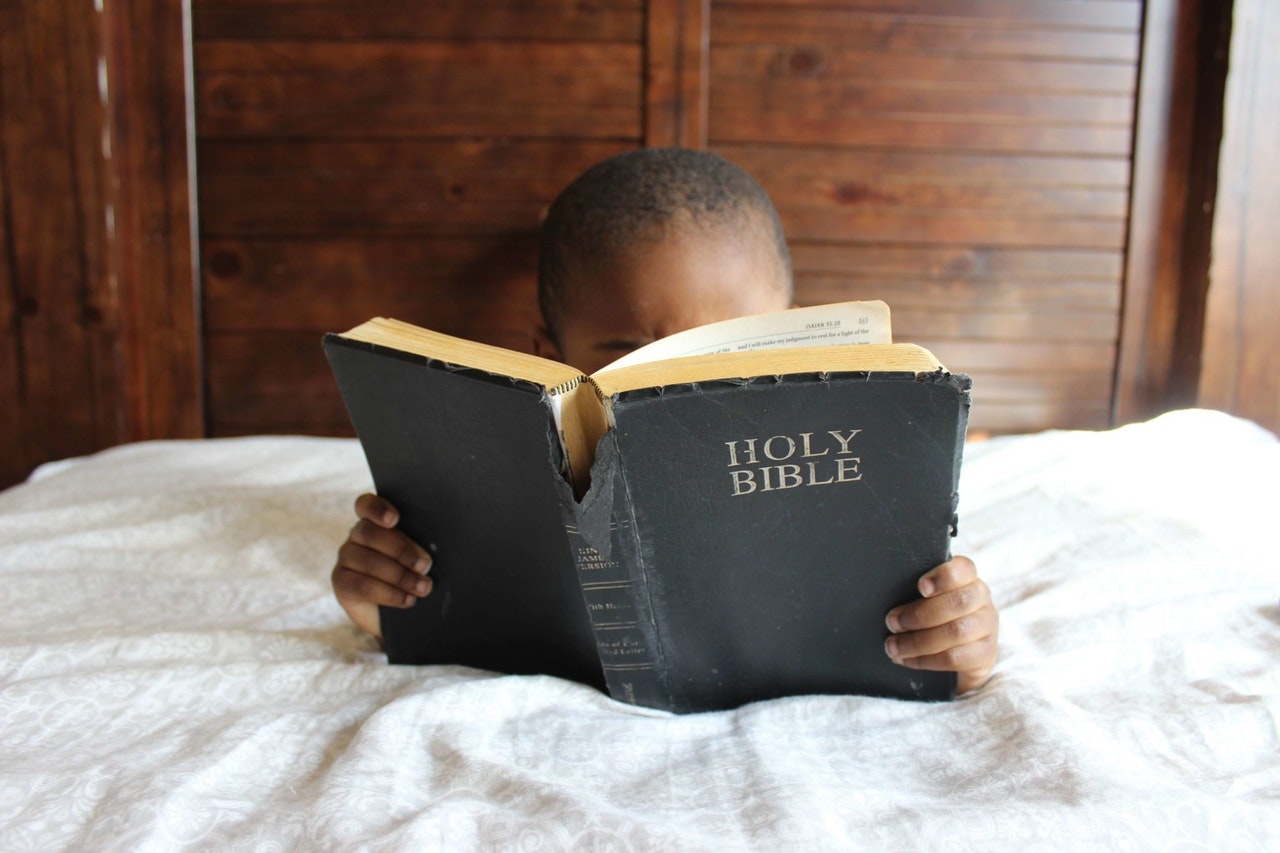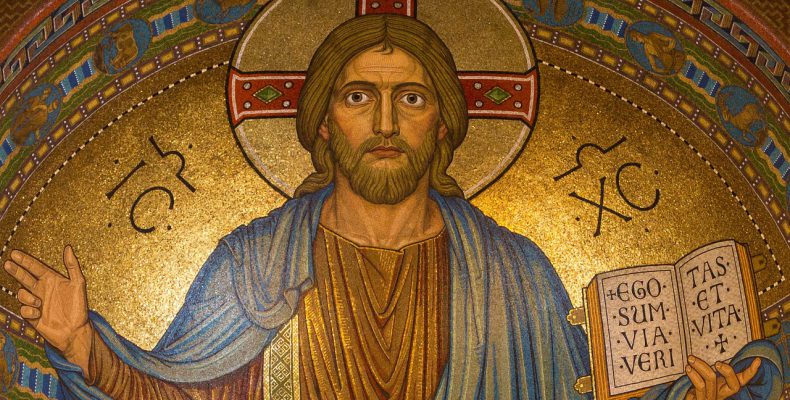SOLEMNITY OF CHRIST THE KING
Cycle C Ordinary Time | Week 34
REFLECTION
– By Fr Ugo Ikwuka
Archway, London
A vain king who goes for the best of everything met his match in a trickster “tailor” who claimed to have the ability to make him a royal robe, which only the wisest could see. The king fell for it and decided to appear in the “invisible” cloth on his most important outing. When the day came and the king emerged smiling proudly, everybody in the crowd itched so hard to see the cloth on him. Then, a little boy screamed: “the king is naked!” That’s when the people saw the reality.
The feast of Christ the King fittingly crowns the Church’s liturgical year. Picture how the King would usually come last in any formal procession. Jesus came to inaugurate the Kingdom of God among us. The Preface to the Eucharistic Prayer in today’s Mass beautifully describes it as “an eternal and universal kingdom; a kingdom of truth and life, a kingdom of holiness and grace, a kingdom of justice, love and peace.”
This is the vision Jesus lived and proclaimed. It contains the deepest hopes and longings of peoples everywhere. To live by this vision is to have the fullness of life. It is to be “brought from the kingdom of darkness into Christ’s own kingdom of light…” as St Paul tells the Colossians in the Second Reading (Col. 12-20).
Living the vision is not necessarily a life without pain or suffering. In fact, pain and suffering may be integral to its realization as exemplified in the life of Jesus himself.
Today’s readings present extraordinarily contrasting but insightfully complementary images of this King. He is foreshadowed in the First Reading (2 Samuel 5 1-3) as all the tribes of Israel came to pledge their loyalty to David, their new king who became the unifying force for the scattered nation of Israel; the northern tribes had been exiled during the Assyrian captivity and the southern tribes during the Babylonian captivity. Jesus arrives as the new David, “sent to the lost of the house of Israel” (Matthew 15: 24).
Following his resurrection, however, it became clear that he is the gatherer, not just of the tribes of Israel, but of all the tribes of the world: “When I am lifted up, I will draw all men to myself” (John 12:32). In magnificent words, the Second Reading extols him as “the image of the unseen God… the first-born of all creation… in whom and through whom all things in the heavens and on earth came into being… and he holds them all in unity.” What could be more sublime?
Yet, this king hangs naked on the cross between two murderous gangsters, stripped of all dignity before a mocking world. Is this truly ‘the image of the unseen God?’ Is this the same One through whom Thrones, Dominions, Sovereignties and Powers came into being? Is this the unifier of all the tribes of the world? Nothing in the ancient world was more despicable than a Roman cross. That is absolutely the last place you will look for a king.

That’s why they placed a mocking inscription on it “This is the King of the Jews”. Yet, nothing can be more prophetic because that’s exactly from where he reigns – the cross! Yes, that moment of utter degradation is in truth the most glorious moment in his life because it is the moment when he gave the uttermost proof of his love: “Greater love has no man than to lay down his life for his friends” (John 15: 13).
It is on the cross that he took on cruelty and the worst of human dysfunction and swallows them up through the power of the divine forgiveness: “Father forgive them for they know not what they do.” It is from the cross that he unifies the tribes of the world (When I am lifted up, I will draw all men to myself); the force that draws the world together in unity is not the force of military might but that of divine love.
You see why St Paul declared that the Cross of Christ is a stumbling block to the Jews and foolishness to the pagans but power and wisdom of God to those who are called (1Cor 1:23-25).
When challenged to prove his kingship, many, even among his friends, expected a spectacular manifestation. But he chose to do so only in his intervention for one man – a criminal, who implores: “Jesus, remember me when you come into your kingdom.” He replies: “Amen, I say to you, today you will be with me in paradise.”
In the light of this, the most important question to ask on the feast of Christ the King is not whether he reigns in the world but whether he reigns in me. It is not whether his kingship is recognized by states and governments, but whether it is recognized and lived in me. Is Christ the King and Lord of my life? Who determines the goals and establishes priorities? According to St. Paul, we can live either for ourselves or for the Lord (Romans 14:7-9).
How disturbing that it was a murderous gangster that recognized that God was being murdered. Perhaps, he could see through the hypocrisy of the religious and civil leadership who really didn’t want a God that disturbs the neat order of things they had established for themselves. It was they that “jeered” while the people went home “beating their breasts” (Luke 23:48).

Today’s feast thus calls us to reflect also on how Jesus reveals the meaning of authority in the kingdom he came to establish on earth. In response to his disciples who were coveting positions of power, he said that pagan rulers lord it over their subjects. In his kingdom, however, whoever wishes to be great must be a servant, for he himself “did not come to be served but to serve and to give his life as a ransom for many” (Mk 10:35-45).




